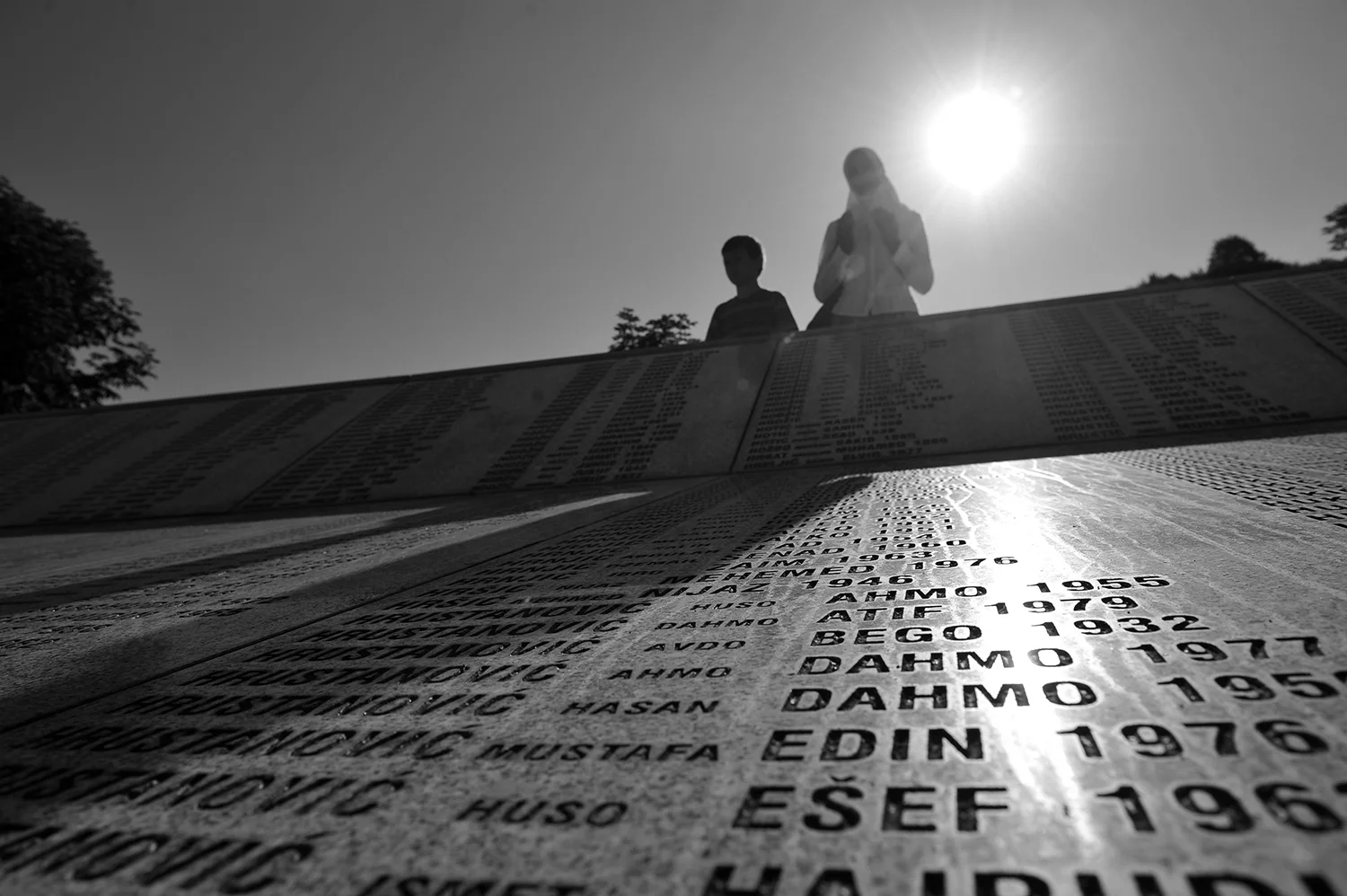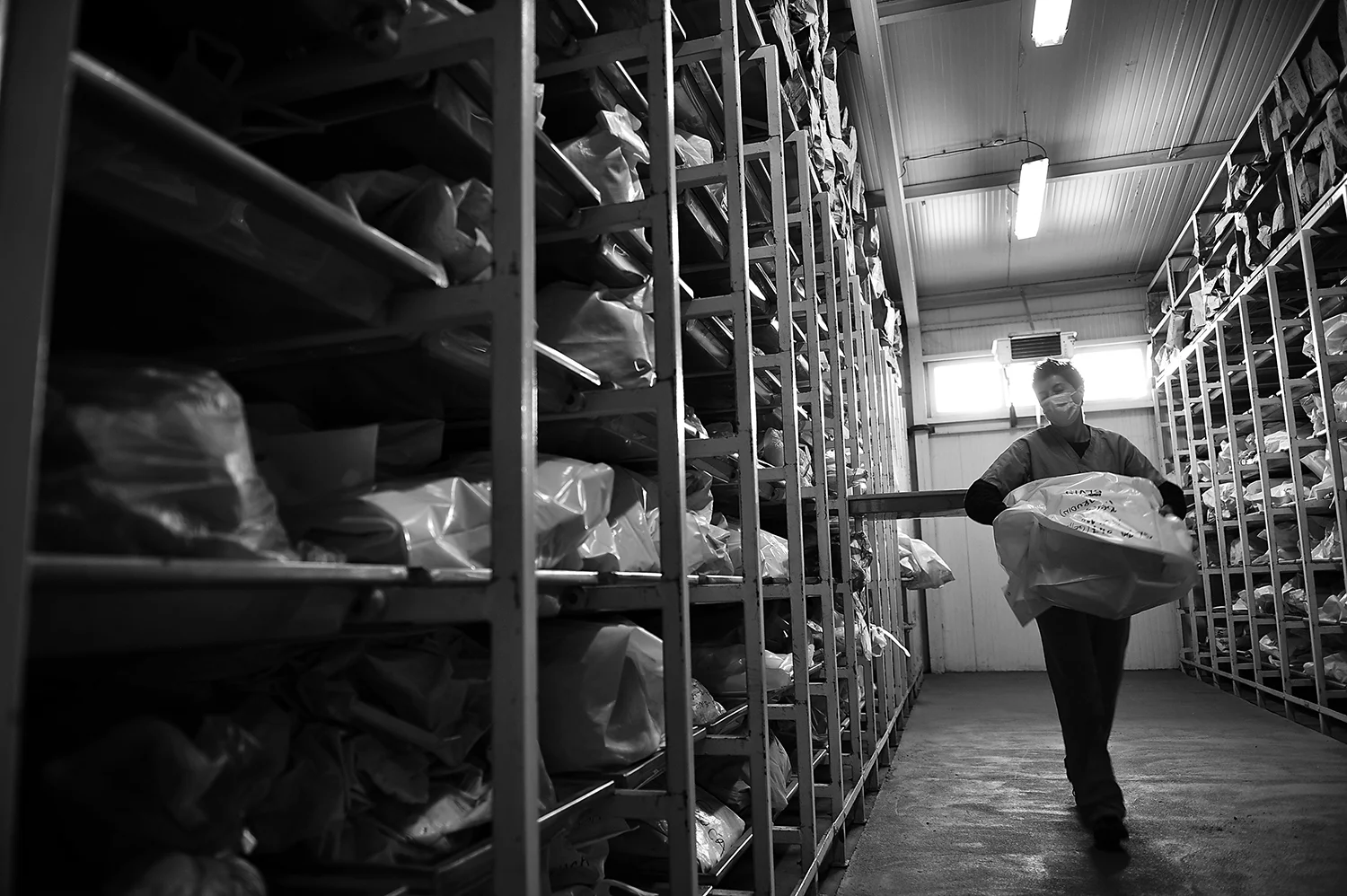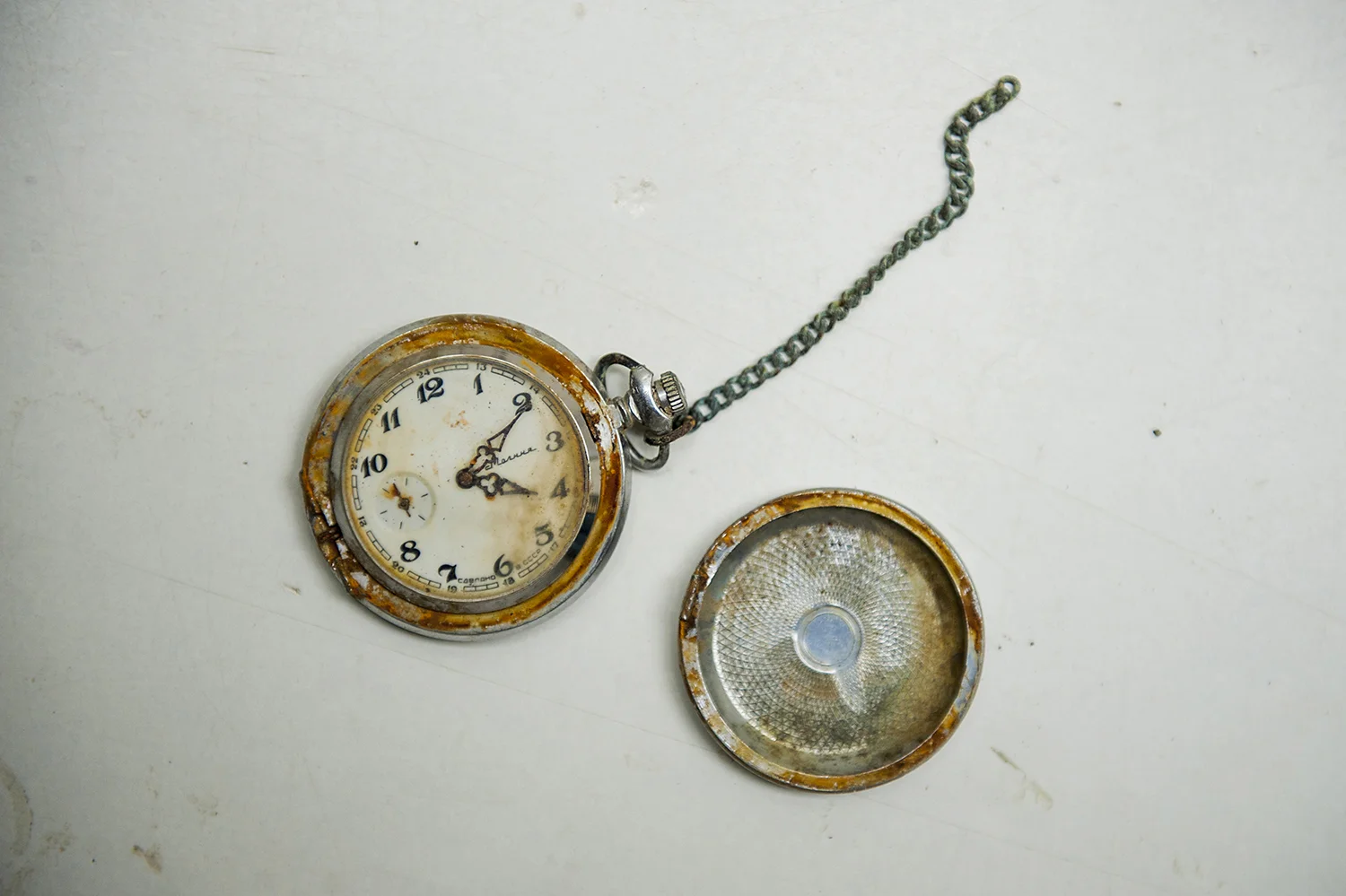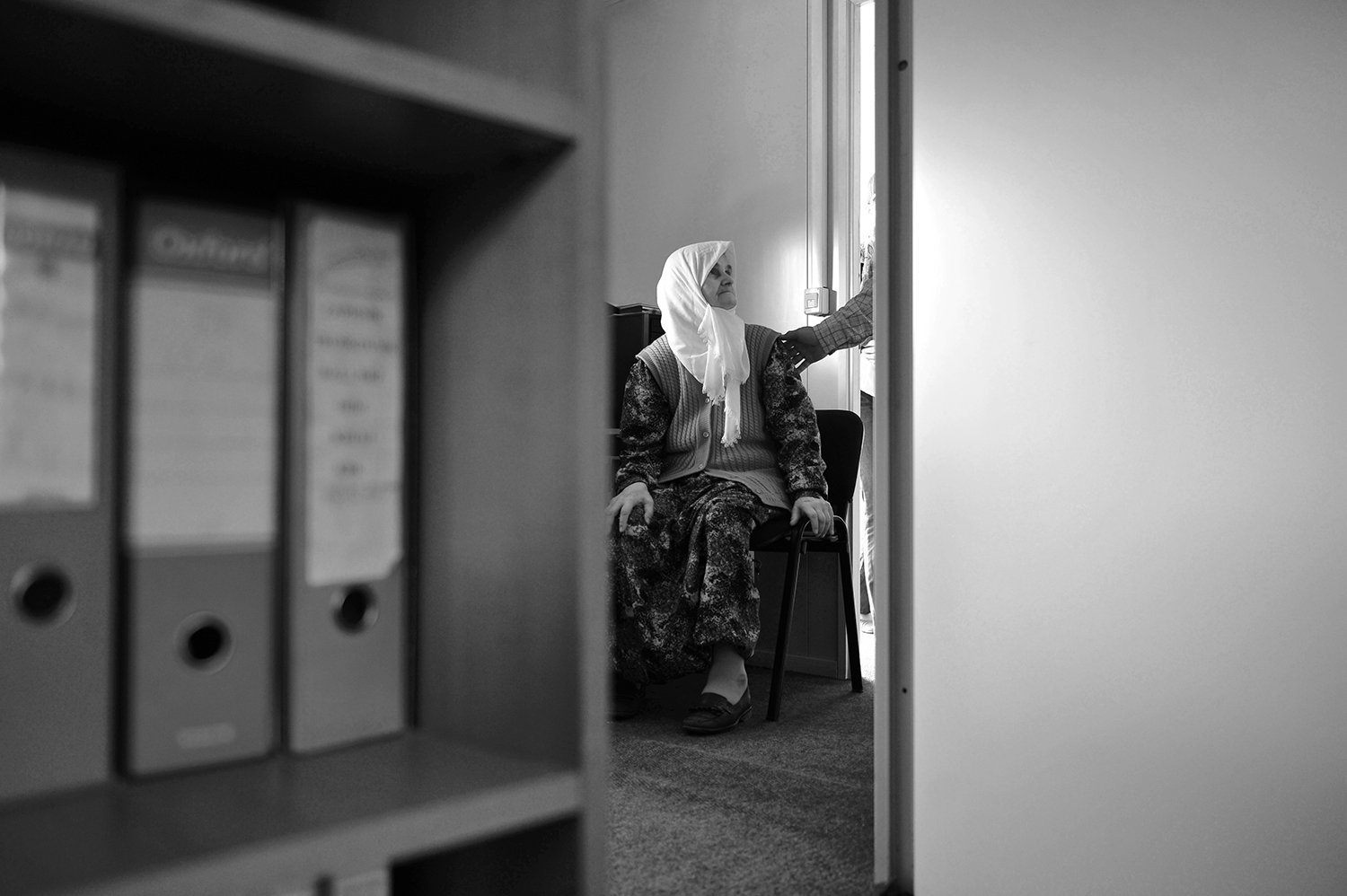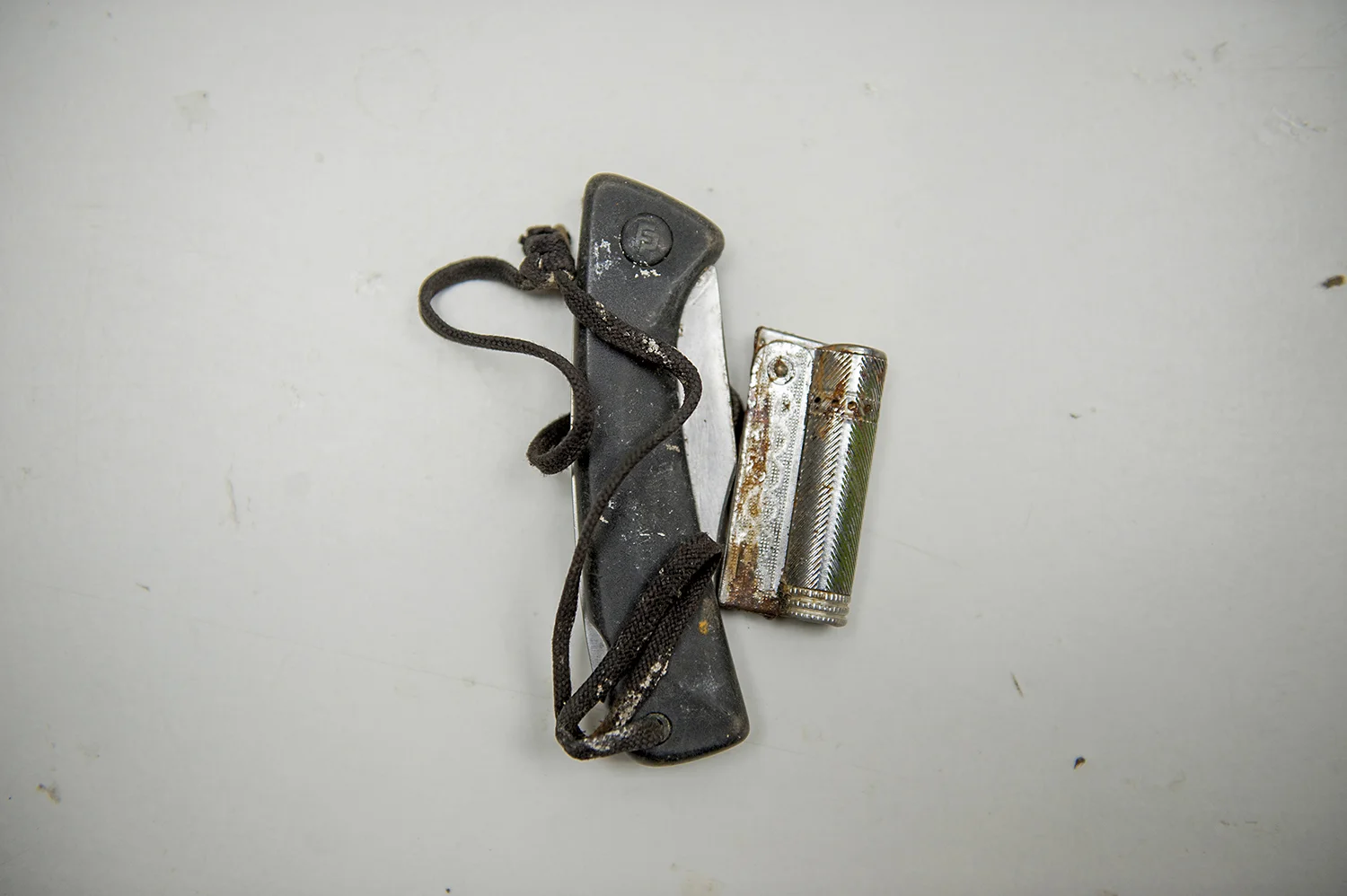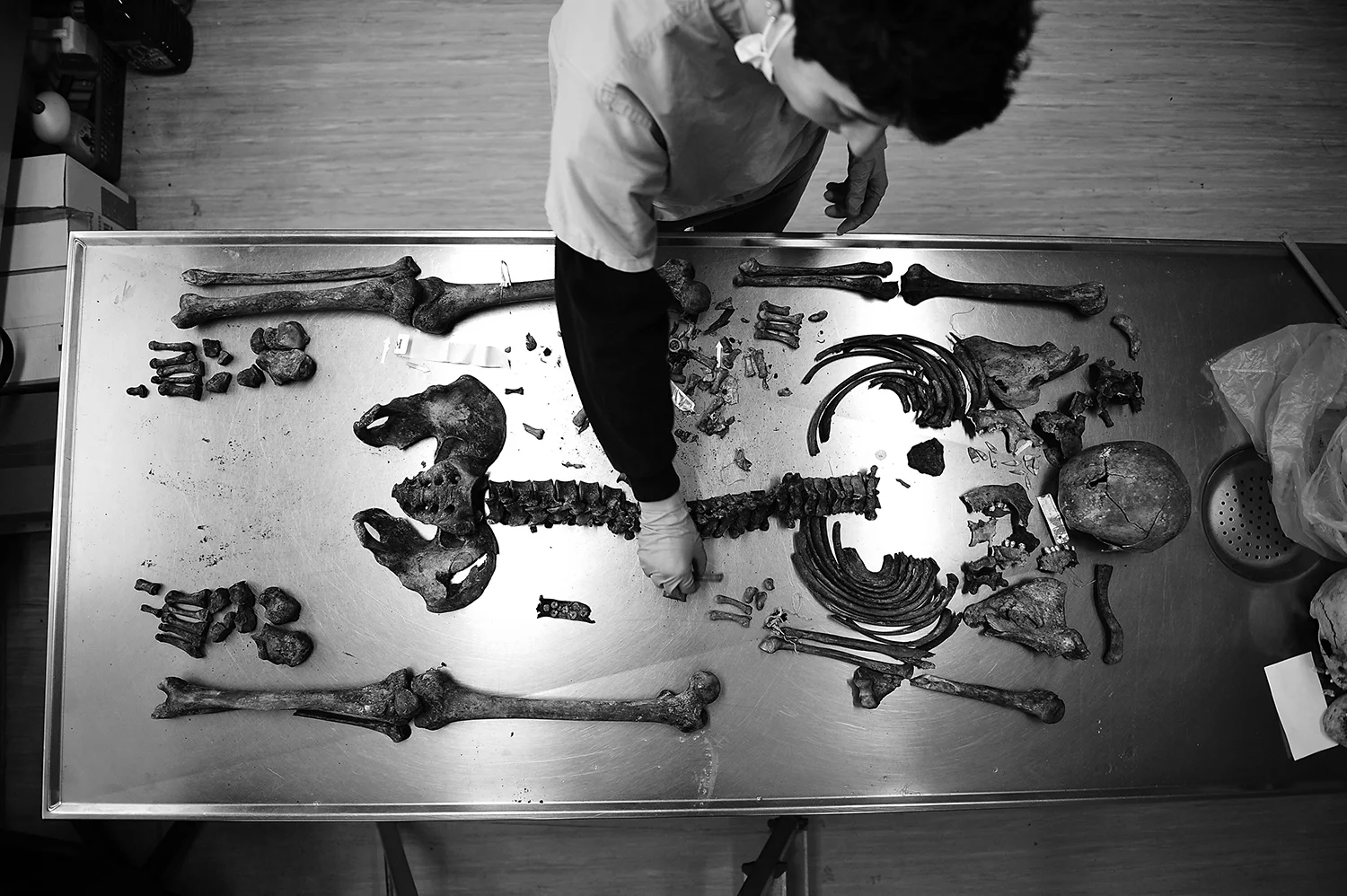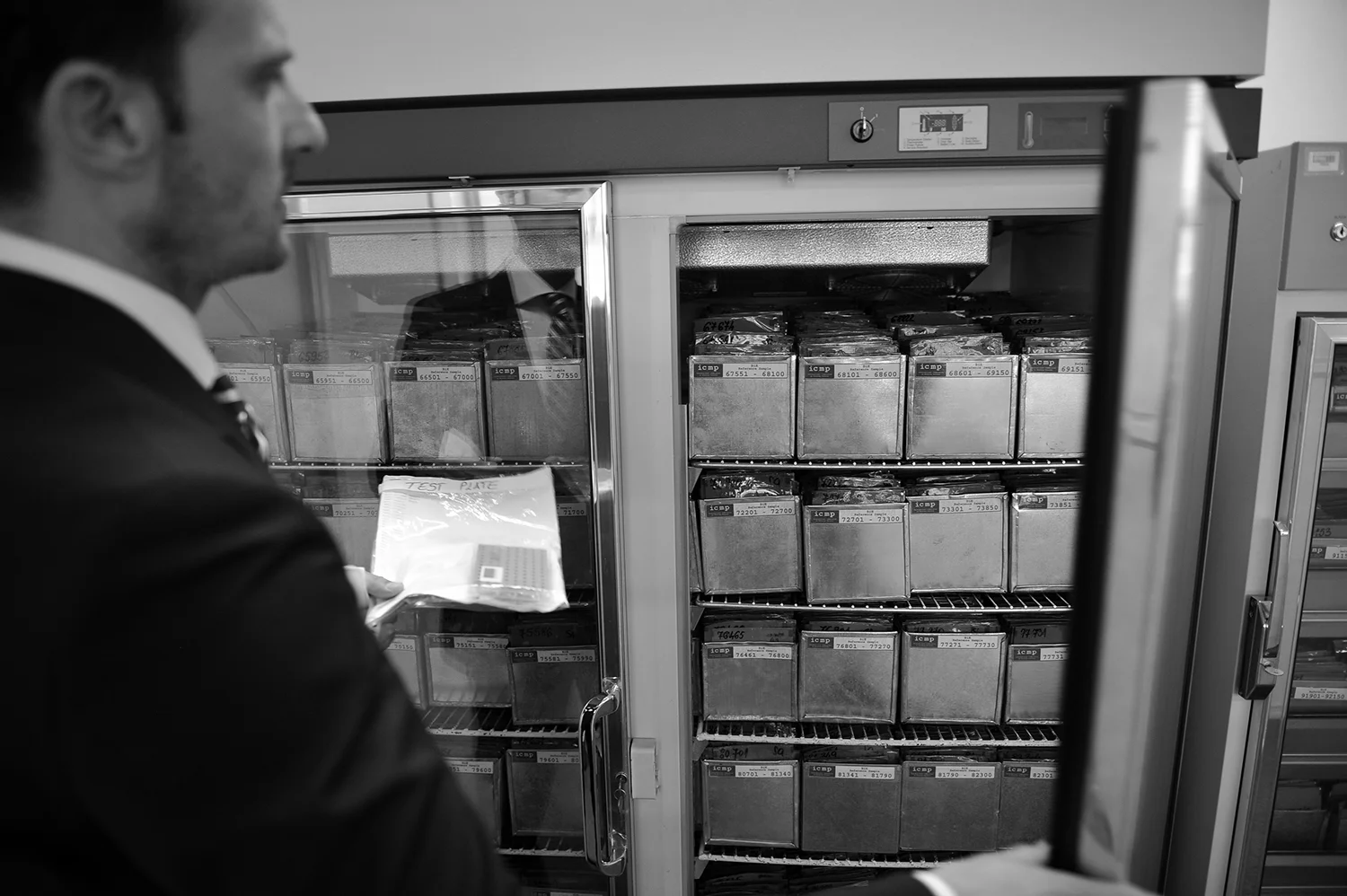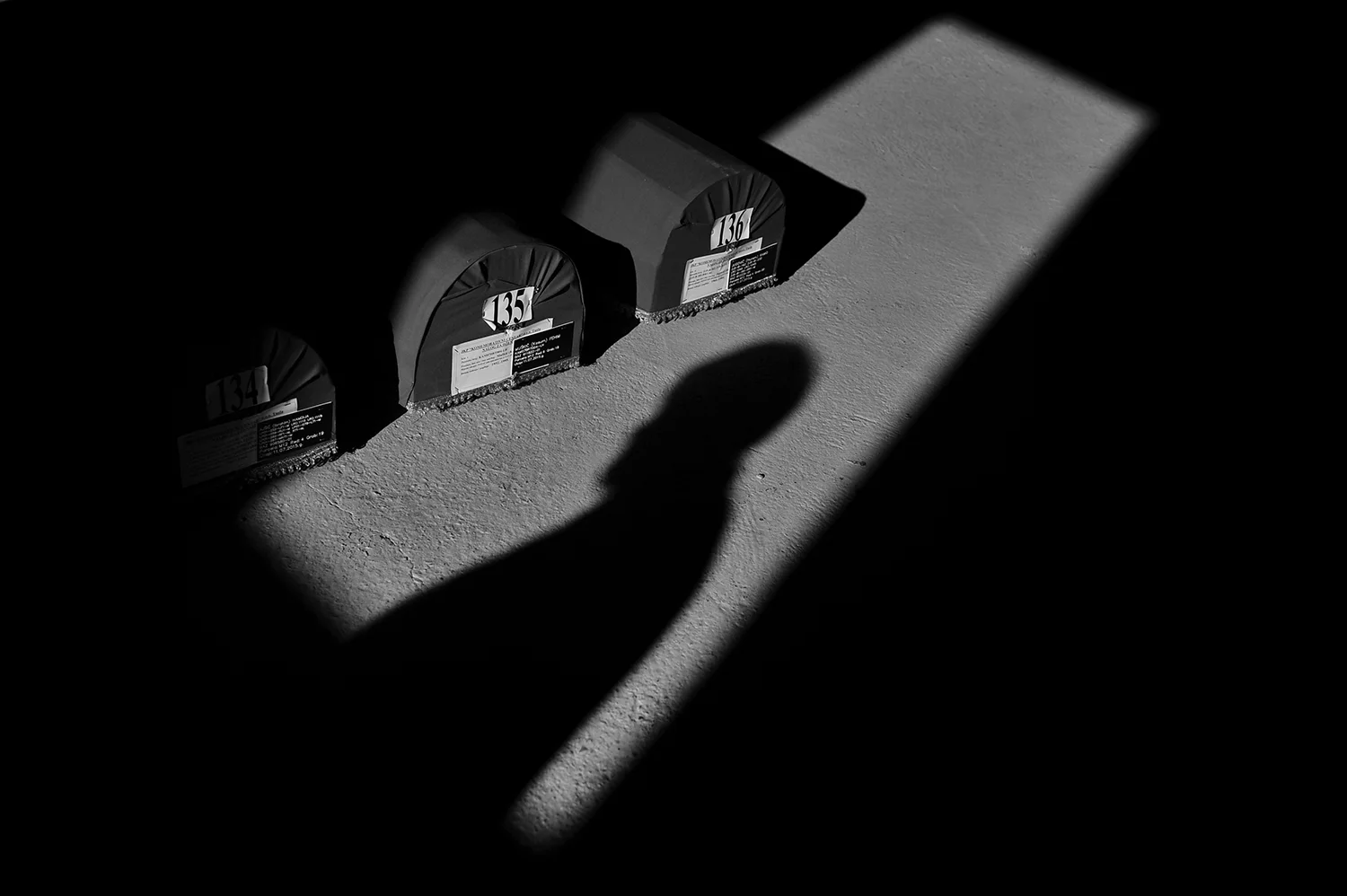Remains of identity
As a result of war, genocide, crimes against humanity and international law the disappearance of approximately 30,000 people in Bosnia and Herzegovina have been documented. Two thousand fifteen marks the twenty years since the Srebrenica genocide. In the period of few days in July 1995, at least 8,300 Bosnian Muslims were assassinated in a shooting range or mercilessly killed. Men and boys were systematically massacred and buried in mass graves. All of these atrocities occurred while the victims were under the protection of UN peacekeeping forces.
Of more than 30,000 missing persons in Bosnia and Herzegovina, nearly 23,000 have been found – the largest number of recovered and identified missing persons following an armed conflict anywhere in the world. Progress has been made, but it is important not to stop the process of searching for more those 8,000 still missing to provide closure for their families and allow them to bury their loved ones with dignity.
The mass graves in Bosnia and Herzegovina are some of the worst ever seen and required unique approaches to identifying the victims recovered from them. More than 90,000 people have donated their blood to the International Commission on Missing Persons (ICMP), hoping to find out the destiny of their loved ones. Finding out what happened to these missing persons is not only a problem for their family members but also a problem for Bosnia and Herzegovina as a whole society. The identification of remains is essential to the process of peacebuilding and stability in Bosnia and Herzegovina.
A woman prays next to the name of Srebrenica victims in the Potocari Memorial Centre, near Srebrenica, Bosnia and Herzegovina. This year is the 20th anniversary of the Srebrenica genocide. Twenty years ago, brothers, sons, husbands, and fathers were torn from their families. They were savagely murdered in the largest mass killing in Europe in a half-century.
Dragana Vucetic, the Senior Forensic Anthropologist of the Podrinje Identification Project, carries a bag containing human remains from Srebrenica at the International Commission on Missing Persons' (ICMP) Podrinje Identification Project Center in Tuzla, Bosnia and Herzegovina. In this morgue are situated thousands of remains of those killed in and around Srebrenica. Forensic anthropologists make the final determination on the identification of remains.
Personal belongings of victims on the table at the International Commission on Missing Persons' (ICMP) Podrinje Identification Project Center(PIP) in Tuzla, Bosnia and Herzegovina. These are items of people who were executed, besides body parts these items are the last resort of their identity. At the center, forensic anthropologists make the final determination on the identification of remains.
Identification book of victims remains at the ICMP facility in Tuzla, Bosnia and Herzegovina.
Dragana Vucetic, the Senior Forensic Anthropologist of the Podrinje Identification Project, applies forensic anthropology techniques to assist in missing person identification of human remains from Srebrenica at the International Commission on Missing Persons' (ICMP) Podrinje Identification Project Center in Tuzla, Bosnia and Herzegovina. Forensic anthropologists make the final determination on the identification of remains.
Personal belongings of victims on the table at the International Commission on Missing Persons' (ICMP) Podrinje Identification Project Center(PIP) in Tuzla, Bosnia and Herzegovina. These are items of people who were executed, besides body parts these items are the last resort of their identity. At the center, forensic anthropologists make the final determination on the identification of remains.
The mother of Srebrenica Dulsa Alic (1938) waits at the premises of the Podrinje Identification Project to assists in the recognition and DNA analysis of remains. During the genocide, she lost two sons and her husband. Her husband has been identified and buried, her oldest son is in the process of being identified, and her youngest son is still missing.
ICMP staff present Mother of Srebrenica Dulsa Alic with a diagram of uncovered skeletal remains and photos of clothes found in a mass grave, so that she can help finalize the process of identification of her son.
Personal belongings of victims on the table at the International Commission on Missing Persons' (ICMP) Podrinje Identification Project Center(PIP) in Tuzla, Bosnia and Herzegovina. These are items of people who were executed, besides body parts these items are the last resort of their identity. At the center, forensic anthropologists make the final determination on the identification of remains.
Dragana Vucetic, the Senior Forensic Anthropologist of the Podrinje Identification Project, compares bones during the process of collating body remains exhumed from mass graves and identified by DNA, in the identification center in Tuzla, 122 km north of Sarajevo, Forensic anthropologists make the final determination on the identification of remains. According to the ICMP, cases exist where the remains of one person have been gathered from 17 different locations.
Edin Jasaragic, ICD Program Coordinator shows a refrigerator with DNA samples at the ICMP Identification Coordination Division laboratory in Tuzla, Bosnia and Herzegovina. The lab is used to process samples for DNA testing and eventual matching between living relatives and deceased victims of the Bosnia war.
Personal belongings of victims on the table at the International Commission on Missing Persons' (ICMP) Podrinje Identification Project Center(PIP) in Tuzla, Bosnia and Herzegovina. These are items of people who were executed, besides body parts these items are the last resort of their identity. At the center, forensic anthropologists make the final determination on the identification of remains.
Shadow of a man standing next to the coffin of a relative, among 136 newly identified Srebrenica victims, at the Potocari memorial cemetery near Srebrenica, some 160 kilometers east of Sarajevo, Bosnia and Herzegovina.
Bosnian man carries the coffins with the remains of 136 newly identified victims of the Srebrenica genocide, which will be buried in the Potocari Memorial Centre. This year is the 20th anniversary of the Srebrenica genocide. Twenty years ago, brothers, sons, husbands, and fathers were torn from their families. They were savagely murdered in the largest massacre in Europe in a half-century.
